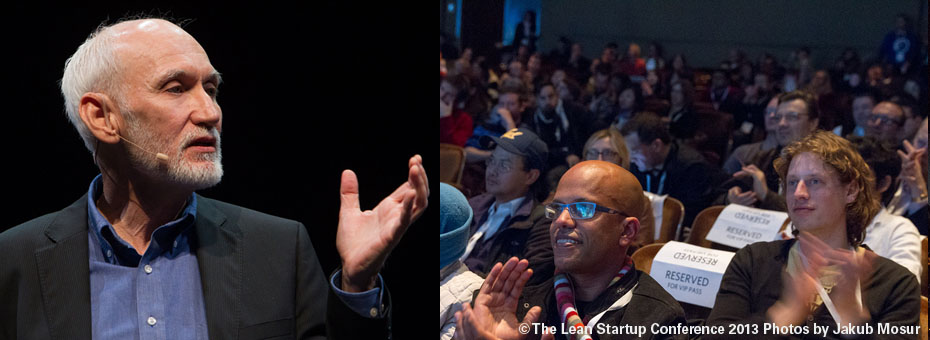I first heard Eric Ries describe the concepts that later became his best-selling book The Lean Startup during my time at The Lean Enterprise Institute in 2009. When I saw Eric speak, he explained concepts that, while rooted in lessons and practices from Toyota, were about creating a new, more effective approach to entrepreneurship. Seeing how useful this was, I was glad to help arrange an LEI webinar where Eric introduced these ideas to the broader lean community, including manufacturers and healthcare organizations.
For those who aren’t familiar, some of the core lean startup concepts include:
- “Getting out of the building” (ala “Genchi Genbutsu”) to talk face-to-face with real people, potential customers, in their “Gemba,” to deeply understand their important problems that they will pay to solve. This is in stark contrast to the old approach of sitting in an office, dreaming up and creating software or services that we hope or assume people will buy. Entrepreneurs need to decide not just “can we build it?” but also “should we?”
- Performing early tests in the market (as early as possible, using a “Minimum Viable Product”), to validate that a startup’s products or services are actually solving a problem that customers are willing to pay for.
- A focus on learning as fast as you can and making small adjustments (or major “pivots”) when the product or the company’s business model are not succeeding.
- Using an iterative design and improvement cycle, the Build-Measure-Learn loop, similar to Plan-Do-Study-Adjust, to continuously improve with data, customer feedback, and analytical rigor.
- Practicing “respect for people” in multiple ways, including not blaming individuals for system problems and making sure developers don’t waste years of their lives working on products nobody will ever buy.
- Performing root cause analysis, including the “five whys” method, when problems occur.
- Updating software in small batches, reducing the time required to bring new features to software or a website, while reducing the risk involved.
Eric often goes out of his way to give credit to creators of the Toyota Production System, including Taiichi Ohno (as he did in this podcast). Like all of us who practice and write about Lean, Eric stands on the shoulders of giants and readily acknowledges that.
One of those giants is John Shook. Earlier this week, John spoke at the fourth annual Lean Startup conference, for the attendees at the San Francisco venue and a global audience receiving the live video stream.
If audience members, most of whom were from software companies or with technical software development backgrounds wondered, “What does a story about a car company have to do with us?,” John made those connections very clear.
While acknowledging that, “Startups are different and have more uncertainty,” John described aspects of a lean culture that should be part of any lean startup:
- Startups need to ask and understand, “What is our purpose?”
- Lean is a management system comprised of both a social system and a technical system. In his opening remarks, Eric described the need to create a more comprehensive “modern management system,” just as Jim Womack has talked and written about.
- “Hiding problems is the most anti-lean situation.” John reminds us we “need to find problems quickly so we can solve them, making everyone an expert problem finder.” Toyota turned the responsibility for improvement “on its head” by trusting production workers to stop the line if they saw problems. This is something startups can and should embrace. Startups need to see problems and solve problems by having everybody engaged in performing experiments.
- Startups should “make it easy to do every job the right way” and support people in improvement. Companies should ask, “How do we improve the work and develop the people?”
- “All workers need permission to fail and the ability to succeed.” It’s been said that Toyota avoids large failures by having lots of small failures, embracing them as learning opportunities.
As John says, these lean management principles are the key to creating sustainable organizations.
Also interesting to me was how Shook spoke about his personal journey through Japan, Toyota, and the NUMMI plant. He described how NUMMI was quickly transformed from the worst GM factory to a successful Toyota/GM joint venture by changing the management system. It’s got to be better to create a Lean culture from the beginning, rather than trying to fix and transform an organization that has gotten broken and dysfunctional over time.
Lean is Lean – the concepts are well established and are universal. We can all learn from each other, whether we work in factories, hospitals, or startup software companies. Things continue to come full circle, as manufacturing companies now learn about strategy deployment from ThedaCare, Japanese hospitals travel to the U.S. to learn about lean healthcare, and companies like Toyota and General Electric are now using lean startup methods.
The video of John’s talk will be available for free on the event’s YouTube channel. For now, I also recommend watching this recorded conversation between John and Eric.



